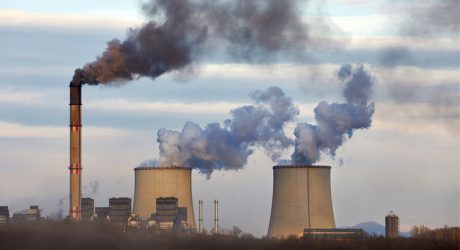ESG is now at the forefront of every large company’s board agenda, but that has not stopped activist groups targeting corporates, with banks and fossil fuel companies in particular being forced onto the front line of a battlefield straddling both the courts and the media. How far could these campaigns against fossil fuel finance go?
Associate Matt Caples provides thoughts on recent examples of climate change litigation, greenwashing allegations and developments in carbon offsetting.
Banks continuing to invest in fossil fuels
Launched in 2023 following the Cop26 UN climate summit, the Glasgow Financial Alliance for Net Zero (GFANZ) initiative grew quickly to involve 450 organisations across 45 countries with total assets of more than $130tn. As covered in The Guardian, research released in January by Reclaim Finance has since put the project under the microscope, and revealed that more than 50 of the biggest banks involved have continued to provide loans to fossil fuel companies for expansion while failing to divest from their existing investments in fossil fuel projects.
Matt says: “The outcomes of this study are arguably unsurprising. Companies pledging to reduce their emissions, such as those which are members of GFANZ, subscribe to the narrative that they can do more to help fossil fuels companies to transition to net zero by continuing to work with them rather than fully divesting themselves of those assets. That explanation only works, however, if those assets are effectively transitioning to net zero. If they are not, then companies claiming that they are cutting emissions as part of a transition to net zero are exposing themselves to significant risk of customer and shareholder litigation.
“It is a challenge for big institutions to ensure that all activities are in line with their publicly stated goals. It is becoming clear that law and regulation are not going to allow businesses to say one thing and do another.”
French campaigners sue BNP Paribas
On 23 February, Oxfam France, Friends of the Earth France and Notre Affaire à Tous filed a lawsuit in the French courts on the grounds of the domestic corporate duty of vigilance law, accusing the bank of ignoring scientific warnings in its continued funding of companies that have initiated new oil and gas projects.
Matt says: “This sort of legal challenge is increasingly likely if companies don’t respond to calls from shareholders to share realistic strategies to reduce emissions. As soon as shareholders’ formal demands for information or change are not met, litigation will follow. This appears to be an international trend with recent examples including Shell being sued in London and Volkswagen in Germany.”
Shell accused of overstating investment in renewables
As the largest investor-owned oil and gas company in Europe, it is no surprise that Shell has been one of the most frequently targeted fossil fuel giants. Reports emerged in February that activist group Global Witness has mounted a campaign against Shell in the US, calling on the Securities and Exchange Commission (SEC) to take action over Shell’s claim in an annual report that 12% of its capital expenditure has been used to fund renewables. Global Witness claims the true figure is just 1.5% with the remaining 10.5% invested in non-renewable gas.
Matt says: “The SEC’s Climate and ESG Task Force was created in March 2021 to address scenarios such as this one. If the SEC does decide to investigate and make a greenwashing finding in respect of Shell, the scale of any fine will be interesting. If the fine is significant enough to impact Shell’s stock value then it may give rise to shareholder litigation.
“Investors may not be put off unless a fine is astronomical, and Shell’s value may not be impacted at all, but this would not be the case for investors with mandates inconsistent with any greenwashing finding. The scope for shareholder litigation is tied to the scope of the fines, should there be any.”
New carbon offset standards
“Working intensively to set a definitive global threshold standard for high-integrity carbon credits,” the carbon credits governance body The Integrity Council for the Voluntary Carbon Market hopes to offer greater reassurance that such schemes will help companies reduce emissions as pledged, per The Guardian.
Matt says: “The regime will remain voluntarily and so not binding on corporates, but should be a positive for investors if it provides better and more accurate labels for carbon credits. More details on this new regime are expected in Q3 of this year, and it will be interesting to see whether a swathe of carbon credits and programmes are labelled as poor or low quality in its wake.
“Any issuers of carbon credits which are revealed to be low quality may well find themselves subject to complaint or legal action by corporates who are using those credits to meet their own emissions targets, and have made public statements in relation to the same subsequent to the purchase of those credits.”
Final thoughts
Partner Elaina Bailes says: “Climate activist groups have kicked off the year with a raft of lawsuits against large polluters and financial institutions in quick succession – a clear statement of intent that they will use litigation to pursue not just carbon majors but their financial backers. Campaigners are using well-established governance laws and incoming ESG reporting regulation as a pressure point for getting businesses to act faster. 2023 could be the year where we start to get court judgments in the UK and Europe that shape corporate environmental policy.”
You can find further information regarding our expertise, experience and team on our Commercial Litigation pages.
If you require assistance from our team, please contact us or alternatively request a call back from one of our lawyers by submitting this form.
Subscribe – In order to receive our news straight to your inbox, subscribe here. Our newsletters are sent no more than once a month.




